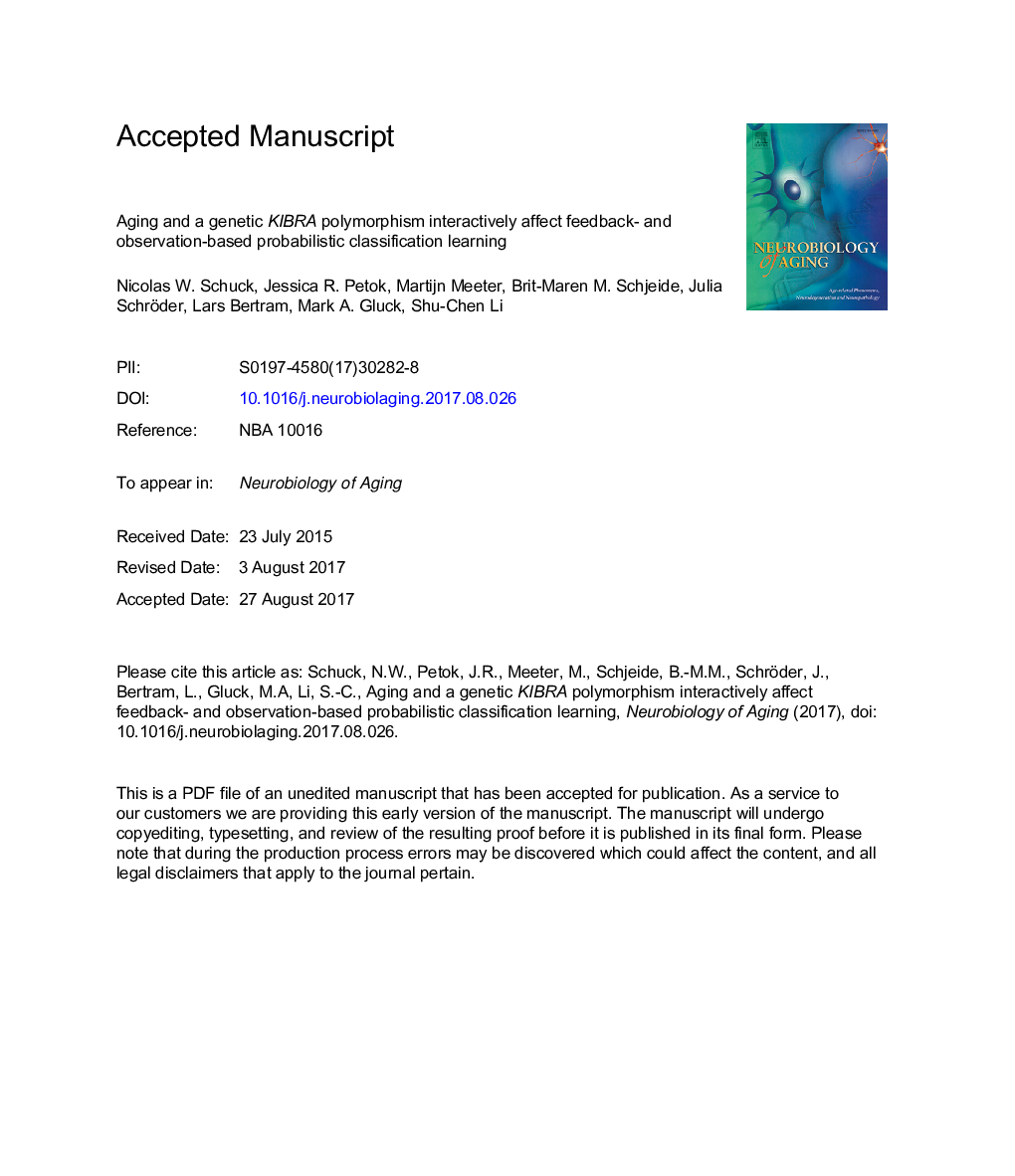| Article ID | Journal | Published Year | Pages | File Type |
|---|---|---|---|---|
| 4932515 | Neurobiology of Aging | 2018 | 32 Pages |
Abstract
Probabilistic category learning involves complex interactions between the hippocampus and striatum that may depend on whether acquisition occurs via feedback or observation. Little is known about how healthy aging affects these processes. We tested whether age-related behavioral differences in probabilistic category learning from feedback or observation depend on a genetic factor known to influence individual differences in hippocampal function, the KIBRA gene (single nucleotide polymorphism rs17070145). Results showed comparable age-related performance impairments in observational as well as feedback-based learning. Moreover, genetic analyses indicated an age-related interactive effect of KIBRA on learning: among older adults, the beneficial T-allele was positively associated with learning from feedback, but negatively with learning from observation. In younger adults, no effects of KIBRA were found. Our results add behavioral genetic evidence to emerging data showing age-related differences in how neural resources relate to memory functions, namely that hippocampal and striatal contributions to probabilistic category learning may vary with age. Our findings highlight the effects genetic factors can have on differential age-related decline of different memory functions.
Related Topics
Life Sciences
Biochemistry, Genetics and Molecular Biology
Ageing
Authors
Nicolas W. Schuck, Jessica R. Petok, Martijn Meeter, Brit-Maren M. Schjeide, Julia Schröder, Lars Bertram, Mark A. Gluck, Shu-Chen Li,
